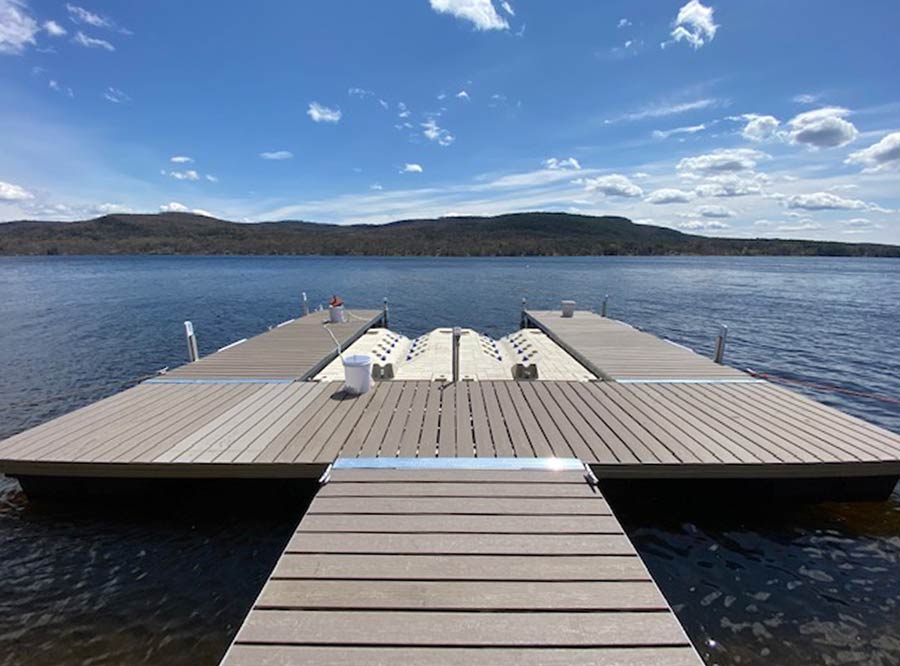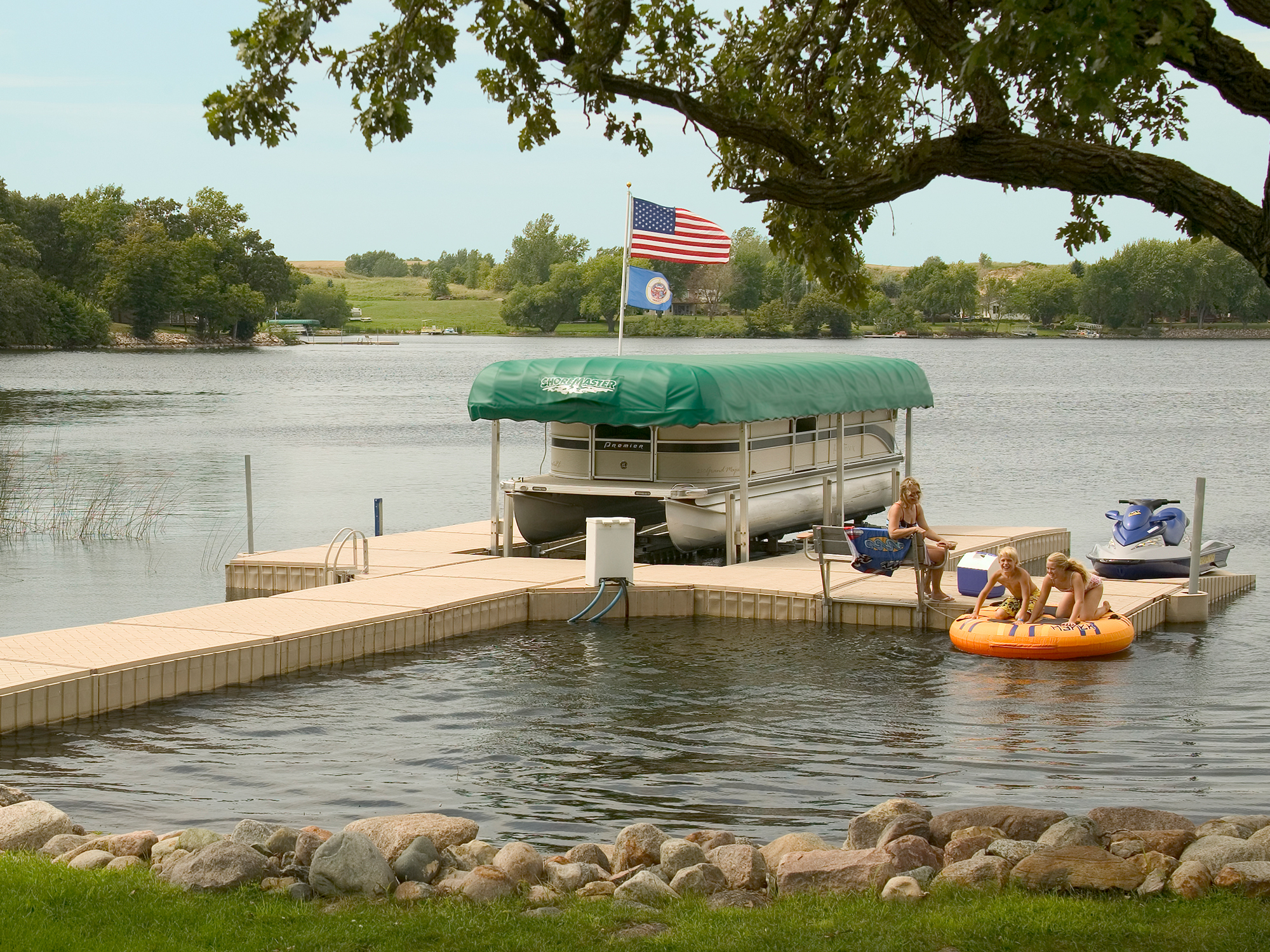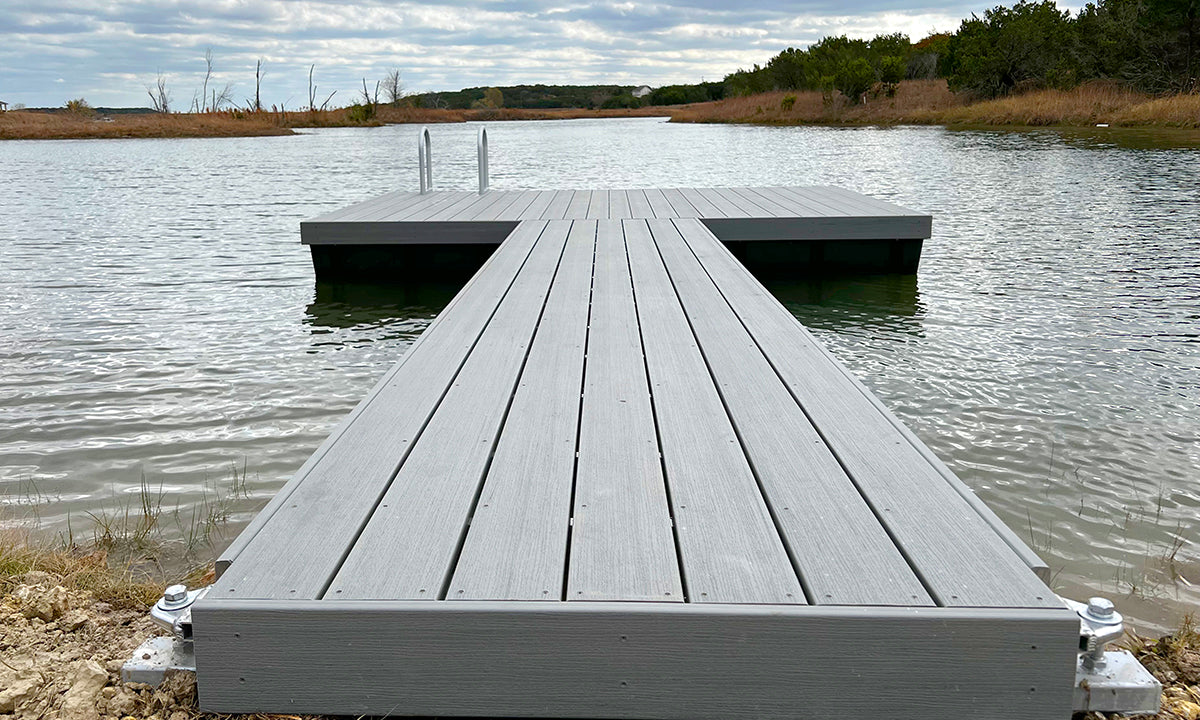Check out the Benefits of Picking a Floating Docks Solution for Your Beachfront Building
Check out the Benefits of Picking a Floating Docks Solution for Your Beachfront Building
Blog Article
The Ultimate Guide to Picking the Finest Floating Docks
Picking the excellent floating dock needs a thorough understanding of different aspects that affect both efficiency and durability. Aspects such as dock kinds, products, and important functions substantially influence your decision-making process.
Recognizing Floating Dock Types
When selecting a drifting dock, it is necessary to comprehend the numerous types available, as each offers distinctive objectives and applications. Floating docks mainly come under 3 classifications: modular, stationary, and pontoon docks.
Modular docks are made up of specific sections that can be quickly set up or reconfigured, making them ideal for changing water levels and varied usages, such as recreational tasks or industrial procedures. Their versatility enables customization based upon particular requirements.

Pontoon docks are defined by their buoyant structure, frequently made up of multiple pontoons that provide stability and support. They are especially appropriate for larger vessels and are typically used in marinas or for beachfront properties. Recognizing these kinds help in choosing the most ideal floating dock to fulfill details requirements, guaranteeing optimum capability and safety and security.
Key Materials for Durability
Selecting the appropriate products for floating docks considerably influences their sturdiness and longevity. One of the most common products consist of wood, plastic, metal, and composite products, each offering distinctive advantages and restrictions.
Wood, commonly preferred for its aesthetic allure, needs routine maintenance to hold up against dampness and decay. Pressure-treated lumber can improve resistance to rot, however it may still be prone to bugs and weathering.

Plastic docks, made of high-density polyethylene (HDPE), are immune to rust, UV radiation, and impact, making them a preferred option for coastal environments. Their lightweight nature likewise assists in simple setup and moving.
Steel docks, typically built from light weight aluminum or galvanized steel, give remarkable stamina and sturdiness. They are immune to rust, especially when treated, but may call for added insulation to stop heat buildup in warm environments.
Composite materials, combining wood fibers and plastics, supply the benefits of both wood and plastic, standing up to wetness and fading while needing minimal upkeep. - floating dock services
Ultimately, the choice of materials must straighten with ecological conditions, intended usage, and upkeep choices to make sure the floating dock remains useful and aesthetically pleasing gradually.
Essential Features to Think About
While the option of materials is critical, thinking about necessary weblink attributes for floating docks is similarly vital to make sure optimal efficiency and customer fulfillment. One essential feature to analyze is the dock's buoyancy ability, which establishes just how much weight it can support without immersing. floating dock builder. This is crucial for suiting watercrafts, individual boat, and even leisure activities
Furthermore, transportability is a considerable consideration. Relying on your needs, you might want a dock that is simple to transfer and dismantle, particularly if you plan to relocate it seasonally. Stability is one more vital attribute; a well-designed floating dock must decrease activity triggered by wind and water currents, offering a protected system for users.
Security features, such as non-slip surface areas and rounded sides, are also vital to avoid mishaps, specifically in wet problems. Take into consideration the schedule of accessories, such as ladders, cleats, and bumpers, which can enhance the performance of your dock.
Installment and Upkeep Tips
Establishing up and maintaining a drifting dock requires cautious planning and interest to information to guarantee its longevity and ideal efficiency. Begin by selecting an ideal area that lessens exposure to solid currents and waves, which can trigger wear and tear. Guarantee that the water deepness suffices for the dock's elevation and that it is anchored securely to stop motion.
During installment, comply with the maker's guidelines carefully, as improper setting up can compromise security. Usage high-quality materials resistant to deterioration, such as light weight aluminum or treated wood, to enhance sturdiness. Frequently examine all elements, consisting of drifts, connectors, and anchoring systems, for indications of damages or wear.
If your Go Here dock uses flotation protection tools, ensure they continue to be free and intact from leaks. By adhering to these setup and maintenance tips, you can delight in a useful and trusted floating dock for years to come.
Budgeting for Your Dock
Budgeting for your dock is a crucial step that can considerably impact your general fulfillment and investment in a waterside building. Developing a clear budget plan helps you navigate the various choices readily available and guarantees you make notified decisions that straighten with your monetary capabilities.
Begin by identifying the size and design of the dock you require, as these elements will substantially influence the price. Floating docks can differ dramatically in cost, relying on products, buoyancy, and attributes like ramps and devices. Research different makers and distributors to contrast costs and understand the market value.
Along with first costs, think about recurring expenses such as maintenance, insurance policy, and prospective repair services. Allocate funds for browse around here these recurring costs to prevent shocks down the line. It's also prudent to allocate any type of essential authorizations or inspections, which might be called for by local regulations.
Lastly, bear in mind the potential return on financial investment. A well-planned dock can enhance your building's worth and charm, offering a favorable economic influence in the long-term. By budgeting properly, you can guarantee that your dock meets your needs without compromising your economic stability.
Conclusion
In verdict, choosing the ideal floating dock requires a detailed examination of various variables, consisting of dock types, materials, vital functions, and installation processes. Cautious consideration of monetary constraints will additionally make certain an audio investment.

While the option of materials is vital, taking into consideration vital features for floating docks is just as vital to make certain optimum efficiency and individual contentment.Establishing up and keeping a floating dock requires careful preparation and attention to detail to ensure its longevity and optimum efficiency. Floating docks can differ dramatically in rate, depending on materials, buoyancy, and features like devices and ramps.In conclusion, selecting the perfect floating dock requires a thorough analysis of numerous factors, consisting of dock kinds, products, essential attributes, and installment processes.
Report this page